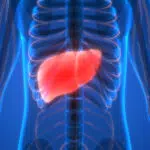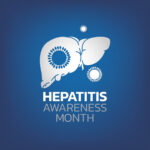Hepatitis Awareness Month is designated in May to raise and spread awareness about hepatitis. Agencies across the country work to promote the importance of hepatitis vaccination and its effective care and treatment, and raise awareness about the consequences of it if it goes untreated. Hepatitis is liver inflammation. Heavy use of alcohol, toxins, some drugs, as well as viral and bacterial infections can lead to hepatitis. In the U.S., the most common forms of hepatitis include viral hepatitis A, hepatitis B, and hepatitis C.
History of Hepatitis Awareness Month
For centuries, hepatitis was a regular thing among soldiers fighting in wars due to bad hygiene conditions. During the mid-19th century, Carl Rokitansky was the first to describe the virus. Soon after, the Civil War took place in the U.S. and many soldiers died due to the disease as well. Over a period of four years, there were around 50,000 confirmed hepatitis cases.
The 20th century saw advances in fighting diseases. It was during WWI that the link between fecal matter and the transmission of hepatitis was discovered. During WWII, Third Reich doctors used Germans as guinea pigs to prove that hepatitis could be of viral origin. At the beginning of the 1970s, the hepatitis A and B viruses were formally identified. However, years later, scientists found that blood transfusion also led to hepatitis — not A or B, but something different. They named it “non-A non-B hepatitis.” In 1989, this variation was identified and renamed hepatitis C virus (or HCV). Known to travel via the bloodstream, it could thus be transmitted by blood transfusion.
Towards the end of the 1990s, blood products were more closely monitored but more and more people were infected and the numbers were on the rise. The main cause was the sharing of contaminated needles among drug users. Since the 1990s, hepatitis C has been treated with a combination of a protein called interferon and an antiviral called ribavirin. But the cure rate is less than 50% and there are many side effects.
At the end of 2013, a new generation of treatments was developed called DAA (Direct-Acting Antiviral). But it was a minor development and very expensive. In June 2014, France and 14 other European countries launched a campaign calling on private labs to lower the price.
Hepatitis Awareness Month timeline
Dr. Baruch Blumberg discovers the Hepatitis B virus and wins the Nobel Prize for this.
Hepatitis A is first isolated for research and vaccine development.
The second generation of a DNA recombinant (or genetically engineered) hepatitis B vaccine is developed.
The first hepatitis A vaccine is approved in the U.S. after receiving approval in Europe in 1991.
Hepatitis Awareness Month FAQs
Which hepatitis is serious?
Hepatitis C is the most serious. According to the Centers for Disease Control (CDC), it causes more than 16,000 deaths per year in the U.S.
Is hepatitis A seasonal?
No, a person is most likely to get infected with hepatitis A from contaminated water or food. Or from coming in close contact with an infected person or even an object that is infected (like a needle).
Why is World Hepatitis Day celebrated on July 28th?
The date of July 28 was chosen for observing World Hepatitis Day in honor of the birthday of Nobel-Prize-winning scientist Dr. Baruch Blumberg, who discovered the hepatitis B virus (HBV) and developed a diagnostic test and vaccine for the virus.
How To Observe Hepatitis Awareness Month
Take part in community walks
The American Liver Foundation organizes many awareness events throughout the U.S. Two such famous events are the Liver Life Walk and Liver Life Challenge. Participate in them to show your support.
Volunteer at a local health center
There are always organizations that need help in spreading their reach, in administration as well as in practical jobs like transportation and meal distribution. You can volunteer and do your bit.
Spread awareness on social media
Use your social media to spread awareness about hepatitis. Repost links and articles on your feeds. Use the hashtags #HepTestingDay, #HepAware, and #HepatitisAwarenessMonth.
5 Facts About Hepatitis That You Should Know
Hepatitis isn’t necessarily related to bad habits
Of the five hepatitis viruses, some spread through contaminated water or food, type B is spread through body fluids and type C is spread only through blood.
Hepatitis can lead to cancer
If not treated properly, inflammation due to chronic hepatitis can cause cell damage and can even lead to liver cancer.
Pregnant women should be tested
Pregnant mothers are the most common cause of transmission of hepatitis B globally so pregnant women should be tested for the virus.
Alcohol makes it worse
For both hepatitis B and C, alcohol worsens the scarring of the liver and aids in its faster progression.
Hepatitis is not genetic
Hepatitis is not inherited, however, type B can be transmitted from a mother to her baby.
Why Hepatitis Awareness Month Is Significant
It spreads awareness about hepatitis
It sheds light on the importance of awareness about hepatitis and its proper vaccination. It also spreads the word about the latest research and developments.
Dismissing the social stigma
Many people have the wrong idea about hepatitis. Hepatitis Awareness Month aims to dismiss all negative social stigma surrounding hepatitis.
It notifies the public about treatment
This month aims to let people know about the various care and treatment options available for all the hepatitis forms. Many people still aren’t fully aware of how to manage this disease.
Hepatitis Awareness Month dates
| Year | Date | Day |
|---|---|---|
| 2026 | May 1 | Friday |
| 2027 | May 1 | Saturday |
| 2028 | May 1 | Monday |
| 2029 | May 1 | Tuesday |
| 2030 | May 1 | Wednesday |














































































































































































